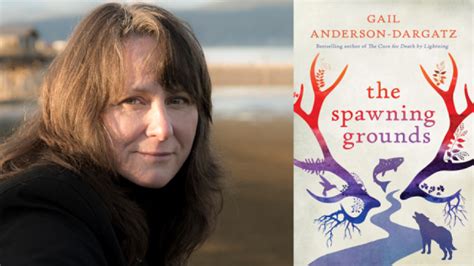Top 849 Description Quotes & Sayings - Page 13
Explore popular Description quotes.
Last updated on April 21, 2025.
Searching for a better description of this rotting sadness, I came upon the concept of acedia. In Christian theology, it’s an antecedent to sloth, the least sexy of the seven deadly sins. Thomas Aquinas winnowed it down for me: acedia is sorrow so complete that the flesh prevails completely over the spirit. You don’t just turn your back on the world, you turn your back on God. You don’t care, and you don’t care that you don’t care.
It is true that of far the greater part of things, we must content ourselves with such knowledge as description may exhibit, or analogy supply; but it is true likewise, that these ideas are always incomplete, and that at least, till we have compared them with realities, we do not know them to be just. As we see more, we become possessed of more certainties, and consequently gain more principles of reasoning, and found a wider base of analogy.
It’s an irritating reality that many places and events defy description. Angkor Wat and Machu Picchu, for instance, seem to demand silence, like a love affair you can never talk about. For a while after, you fumble for words, trying vainly to assemble a private narrative, an explanation, a comfortable way to frame where you’ve been and whats happened. In the end, you’re just happy you were there - with your eyes open - and lived to see it.
The true liberty of the press is amply secured by permitting every man to publish his opinion; but it is due to the peace and dignity of society, to inquire into the motives of such publications, and to distinguish between those which are meant for use and reformation, and with an eye solely to the public good, and those which are intended merely to delude and defame. To the latter description, it is impossible that any good government should afford protection and impunity.
Her pleasure in the walk must arise from the exercise and the day, from the view of the last smiles of the year upon the tawny leaves and withered hedges, and from repeating to herself some few of the thousand poetical descriptions extant of autumn-that season of peculiar and inexhaustible influence on the mind of taste and tenderness-that season which has drawn from every poet worthy of being read some attempt at description, or some lines of feeling.
Early on, I settled on the first-person strategy as a way to deal with exposition and world-description issues. As long as the book is, it could have been far longer had I gone with an omniscient third-person narrator, or multiple point-of-view characters, since either of those would have enabled me to impart much more detailed information about the history and geography of the world.
Ah!" I cried, springing up. "But no! no! My uncle shall never know it. He would insist upon doing it too. He would want to know all about it. Ropes could not hold him, such a determined geologist as he is! He would start, he would, in spite of everything and everybody, and he would take me with him, and we should never get back. No, never! never!" My over-excitement was beyond all description.
The liberty I mean is social freedom. It is that state of things in which liberty is secured by the equality of restraint. A constitution of things in which the liberty of no one man, and no body of men, and no number of men, can find means to trespass on the liberty of any person, or any description of persons, in the society. This kind of liberty is, indeed, but another name for justice.
Good description is a learned skill, one of the prime reasons why you cannot succeed unless you read a lot and write a lot. It’s not just a question of how-to, you see; it’s also a question of how much to. Reading will help you answer how much, and only reams of writing will help you with the how. You can learn only by doing.
The writing I have in mind and sometimes indulge in myself is concerned, not with plants, mountains or birds as items of scientific description, but with experiences of nature that impinge upon our moods and emotions, enrich our imagination and reveries, and shape our sense of how we stand in relation to the environing world. In a broad sense of the term, this kind of writing is an exercise in phenomenology, an attempt to render the significance that birds, plants or whatever have for us.
Kripke says that physicalists like me can't explain the 'apparent contingency' of mind-brain identities. He maintains that, if I really believed that pains are C-fibres, then I ought no longer to have any room for the thought that 'they' might come apart. His argument is that, since pains aren't identified via some contingent description, but in terms of how they feel, I have no good way of constructing a possible world, so to speak, where C-fibres are present yet pains absent.
Politically Incorrect was the name of the show Bill Maher hosted in the 1990s. It's also an apt description of the man himself. Now host of - HBO's hit show Real Time, I find Maher to be one of the sharpest observers of American politics and life in general out there. It doesn't mean I always agree with him. I always find him funny, though.
The King saw them with no common satisfaction, expressing his desire in no particular to have yt Stellar fish engraven and printed. We wish very much, Sir, yt you could procure for us a particular description of yesd Fish, viz. whether it be common there; what is observable in it when alive; what colour it then hath; what kind of motion in the water; what use it maketh of all that curious workmanship, wch Nature hath adorn'd it with?
And if I'm guilty of having gratuitous sex, then I'm also guilty of having gratuitous violence, and gratuitous feasting, and gratuitous description of clothes, and gratuitous heraldry, because very little of this is necessary to advance the plot. But my philosophy is that plot advancement is not what the experience of reading fiction is about. If all we care about is advancing the plot, why read novels? We can just read Cliffs Notes.
...monetary exchanges have interesting things in common; Gresham's law, if true, says what one of these interesting things is. But what is interesting about monetary exchanges is surely not their commonalities under physical description. A natural kind like a monetary exchange could turn out to be co-extensive with a physical natural kind; but if it did, that would be an accident on a cosmic scale.
This word "description" may be disconcerting when used to refer to what is generally called a translation. But when one wishes to render a verbal creation (as opposed to a didactic statement) from one language to another, he is confronted with two equally unsatisfactory choices. He may, according to his talents, elaborate a similar, but never identical creation, or he may describe that creation as completely as possible in his own language.
Stanford may be the best university in the world, but you can get all the way through here without knowing where your food came from, without being able to say where we came from, without being able to give a coherent description of why the climate is changing and why we should be concerned about it. So I started teaching a course in human evolution and the environment that's open to all Stanford students, no prerequisites.
There never did, there never will, and there never can exist a parliament, or any description of men, or any generation of men, in any country, possessed of the right or the power of binding and controlling posterity to the 'end of time,' or of commanding for ever how the world shall be governed, or who shall govern it. Every age and generation must be as free to act for itself, in all cases, as the ages and generations which preceded it.
Capturing the beauty of the conversion of the water into wine, the poet Alexander Pope said, "The conscious water saw its Master and blushed." That sublime description could be reworked to explain each one of these miracles. Was it any different in principle for a broken body to mend at the command of its Maker? Was it far-fetched for the Creator of the universe, who fashioned matter out of nothing, to multiply bread for the crowd? Was it not within the power of the One who called all the molecules into existence to interlock them that they might bear His footsteps?
A campaign, like a brand, is not just a number of bits put together - a claim here, a pack shot there, a reason why somewhere else. If we try to produce it by the atomistic approach, we will end up with a sort of Identikit brand. It will be a perfect description of the structure of the brand, as the Identikit can describe the contours of the face. But it won't be the same thing. The brand will never come to life.
Suicide is a particularly awful way to die: the mental suffering leading up to it is usually prolonged, intense and unpalliated. There is no morphine equivalent to ease the acute pain, and death, not uncommonly, is violent and grisly. The suffering of a suicidal is private and inexpressible, leaving family members, friends and colleagues to deal with an almost unfathomable kind of loss, as well as guilt. Suicide carries in its aftermath a level of confusion and devastation that is, for the most part, beyond description.
In 1915 Sophie Tauber and I carried out our first works in the simplest forms, using painting, embroidery and pasted paper (without using oil colors to avoid any reference with usual painting). These were probably the first manifestations of their kind, pictures that were their own reality, without meaning or cerebral intention. We rejected everything in the nature of a copy or a description, in order to give free flow to what was elemental and spontaneous.
The prince's official job description as king will be 'defender of the faith,' which currently means the state-financed absurdity of the Anglican Church, but he has more than once said publicly that he wants to be anointed as defender of all faiths—another indication of the amazing conceit he has developed in six decades of performing the only job allowed him by the hereditary principle: that of waiting for his mother to expire.
Man tends to think that he is a creator, that he is like God. This is especially true of intellectuals, and in the last century, intellectuals tended to forget that they were like everyone else. Writing this book was a description of man going from a state of God back to a state of man, back to being a normal person.
Was it me you were discussing?” he countered with lifted brows. “I couldn’t tell from the description you were giving. Since when am I kind, considerate, refined, and amiable?” “You’re angry,” Victoria concluded on a sigh. A low chuckle rumbled in his chest and his arms tightened, drawing her close to his leann, muscular body. “I’m not angry,” he said in a husky, gentle voice. “I’m embarrassed
The heart is commonly reached, not through the reason, but through the imagination, by means of direct impressions, by the testimony of facts and events, by history, by description. Persons influence us, voices melt us, looks subdue us, deeds inflame us. Many a man will live and die upon a dogma; no man will be a martyr for a conclusion.
If you look at most womens writing, women writers will describe women differently from the way male writers describe women. The details that go into a woman writers description of a female character are, perhaps, a little more judgmental. Theyre looking for certain things, because they know what women do to look a certain way.
Developing fewer features allows you to conserve development resources and spend more time refining those features that users really need. Fewer features mean fewer things to confuse users, less risk of user errors, less description and documentation, and therefore simpler Help content. Removing any one feature automatically increases the usability of the remaining ones.
There's this whole notion of being an Indian - the idea that "warrior" is a positive description of us [Indians as native Americans]. When an Indian guy does well, he's a warrior, even now. He could be a computer salesman, but if he does well, he's a warrior. I'm not a pacifist by any measure, but I'm also fully aware that the reasons I might go to war could be very dubious.
I am aware of the changes, but in no sense am I believer that we live in a post-racial society. That's a description of our inheritance and that is theirs, which is inescapable. It is doesn't matter if you are from New England or Mississippi. You're an American. It doesn't matter if you are white, black, brown, or Asian. It is part of American society. You'd have to be blind, deaf, or dumb not to know it. The emphasis on color or the fear of it, is all part of the same dark flower. I am trying to point to that and to bring it all the way back from Senegal.
You’re a guardian angel now.”.... I’m your guardian angel,” he said. “I get my very own guardian angel? What, exactly, is your job description?” “Guard your body.” His smile tipped higher. “I take my job seriously, which means I’m going to need to get acquainted with the subject matter on a personal level.
We depend on our words... Our task is to communicate experience and ideas to others. We must strive continually to extend the scope of our description, but in such a way that our messages do not thereby lose their objective or unambiguous character... We are suspended in language in such a way that we cannot say what is up and what is down. The word "reality" is also a word, a word which we must learn to use correctly.
Perhaps randomness is not merely an adequate description for complex causes that we cannot specify. Perhaps the world really works this way, and many events are uncaused in any conventional sense of the word. Perhaps our gut feeling that it cannot be so reflects only our hopes and prejudices, our desperate striving to make sense of a complex and confusing world, and not the ways of nature.
I have never seen an adequate description anywhere of the amazement, the uncomprehending horror of the bulk of the American people which preceded the firing of that gun at Sumter. Politicians or far-sighted leaders on both sides knew what was coming. And it is they who have written histories of the war. But to the easy-going millions, busied with their farms or shops, the onrushing disaster was as inexplicable as an earthquake. Their protest arose from sea to sea like the clamor of a gigantic hive of frightened bees.
Often, when I want to read something that is satisfying to me as theology, what I actually read is string theory, or something like that - popularizations, inevitably, of scientific cosmologies - because their description of the scale of things and the intrinsic, astonishing character of reality coincides very beautifully with the most ambitious theology. It is thinking at that scale, and it is thinking that is invested with meaning in a humanly evocative form. That's theology.
And then it was, that grief and pain made themselves known to me as never before. Note this, because I knew the full absurdity of Fate and Fortune and Nature more truly than a human can bear to know it. And perhaps the description of this, brief as it is, may give consolation to another. The worst takes its time to come, and then to pass. The truth is, you cannot prepare anyone for this, nor convey an understanding of it through language. It must be known. And this I would wish on no one in the world.
When I was a film critic, the reason I kind of found it disenchanting was because the things that I wanted to talk about were the ideas in the movie, the theme of it, and contextual elements that weren't necessarily central to the story. But the only thing people really wanted was a plot description and how many stars I'd give it. It didn't matter how much effort you put into writing a piece, they looked at it solely as a consumer's guide toward going or not going to films.
Do the structures of language and the structures of reality (by which I mean what actually happens) move along parallel lines? Does reality essentially remain outside language, separate, obdurate, alien, not susceptible to description? Is an accurate and vital correspondence between what is and our perception of it impossible? Or is it that we are obliged to use language only in order to obscure and distort reality -- to distort what happens -- because we fear it?
If I'm a CEO and I say, 'Misogyny will not be tolerated', that's a more powerful statement than 'It is my sincere hope and our intention to eradicate misogyny from this company'. Sometimes saying things in that more categorical form, has a real function. Although, if you dig beneath it, it is actually one of J.L. Austin's illocutionary acts; you're trying to make something happen rather than describing something already happened. The fact that it has the grammatical form of a description is fine.
Revealingly, the central function of the Constitution as law--the supreme law--was to impose limitations not on the behavior of ordinary citizens but on the federal government. The government, and those who ran it, were not placed outside the law, but expressly targeted by it. Indeed, the Bill of Rights is little more than a description of the lines that the most powerful political officials are barred from crossing, even if they have the power to do so and even when the majority of citizens might wish them to do so.
Few novels truly deserve the description 'rollicking' in the way Mary Novik's Conceit does. A hearty, boiling stew of a novel, served up in rich old-fashioned story-telling. Novik lures her readers into the streets of a bawdy seventeenth-century London with a nudge and a wink and keeps them there with her infectious love of detail and character. A raunchy, hugely entertaining read that will leave you at once satiated and hungry for more.
The Divine was beyond description, beyond knowing, beyond comprehension. To say that the Divine was Creation divided by Destruction was as close as one could come to definition. But the puny of soul, the dull of wit, weren't content with that. They wanted to hang a face on the Divine. They went so far as to attribute petty human emotions - anger, jealousy, etc - to it, not stopping to realize that if God were a being, even a supreme being, our prayers would have bored him to death long ago.
While the scientist, on the one hand, is concerned with giving a faithful description of facts, on the other, he has the equally important task of construing them in relation to some explanatory conjecture. Similarly the historian has a double duty: both of reporting the past as nearly as possible as it passed or was lived through by men at the time (without doctoring up events to fit later developments or some more "enlightened reading" of them); and second, of interpreting their import in the light of a present hypothesis.
I suppose in our contemporary lives, our cumulative e-mails might constitute a kind of diary: that informal, moment-by-moment description of life as it goes by. . As I think of those notes now - what I wrote, what I said - it seems to me they danced across the surface just as my grandmother's diaries did - Anais Nin she wasn't, and I wasn't, either. Who is? Not even Anais Nin.
I found Mr. Carter's actions toward the Republic of China so incredible that they defy description by socially acceptable expletives. If December 7, 1941 was a "day of infamy" then December 15, 1978 ranks right up there in international betrayal...The pathetic thing about this whole mess, however, is that it is typical of this administration's conduct of foreign affairs, which could be kindly described as being riddled by ineptitude and hypocrisy.
We're starting to realize that magicians have a lot of implicit know-ledge about how we perceive the world around us because they have to deceive us in terms of controlling attention, exploiting the assumptions we make when we do and don't notice a change in our environment. There is an enormous amount of really detailed instruction on how to perform magic. People are always blown away by how detailed a description you'll have.
If you look at most women's writing, women writers will describe women differently from the way male writers describe women. The details that go into a woman writer's description of a female character are, perhaps, a little more judgmental. They're looking for certain things, because they know what women do to look a certain way.
Lately, however, on abandoning the brindled and grey mosquitos and commencing similar work on a new, brown species, of which I have as yet obtained very few individuals, I succeeded in finding in two of them certain remarkable and suspicious cells containing pigment identical in appearance to that of the parasite of malaria. As these cells appear to me to be very worthy of attention ... I think it would be advisable to place on record a brief description both of the cells and of the mosquitos.
Well, I don't ever leave out details, in that I don't come up with information or description which I don't then use. I only ever come up with what seems to me absolutely essential to make the story work. I'm not usually an overwriter. As I revise, it's usually a matter of adding in as much vivid details as seem necessary to make the story come clear without slowing down the momentum of the story.
Art is revelation instead of information, expression instead of description, creation instead of imitation or repetition. Art is concerned with the HOW, not the WHAT; not with literal content, but with the performance of the factual content. The performance - how it is done - that is the content of art.
Nobody would know me from my own description of myself; which is why, when called upon (rarely, I grant) to provide an account, I tailor it, I adapt, I try to provide an outline that can, in some way, correlate to the outline that people understand me to have -- that, I suppose, I actually have, at this point. But who I am in my head, very few people really get to see that. Almost none. It's the most precious gift I can give, to bring her out of hiding.
It’s a gift to joyfully recognize and accept our own smallness and ordinariness. Then you are free with nothing to live up to, nothing to prove, and nothing to protect. Such freedom is my best description of Christian maturity, because once you know that your “I” is great and one with God, you can ironically be quite content with a small and ordinary “I.” No grandstanding is necessary. Any question of your own importance or dignity has already been resolved once and for all and forever.
Any negative review you write, they'll say, "Oh, you're being so mean." I think the problem with a lot of criticism is that too many critics either write just description or they write in a Mandarin jargon that only a handful of people can understand, or they write happy criticis - everything is good that they write about. I think that's really not good. I think it's damaged a lot of our critical voices.
Muscular dystrophy ... was never seen until Duchenne described it in the 1850s. By 1860, after his original description, many hundreds of cases had been recognised and described, so much so that Charcot said: 'How is it that a disease so common, so widespread, and so recognisable at a glance - a disease which has doubtless always existed - how is it that it is recognised only now? Why did we need M. Duchenne to open our eyes?'
The switch to the market in Eastern Europe, of course, has not exactly been one of the greatest advertisements for the market. There's no question the socialist system - and I hate to use the word 'socialist,' but I suppose some description of a system in which the state is in control - was breaking down, really collapsing. In these countries, most markedly in Russia itself and in a number of the others, it obviously was based on a tyranny, which is unacceptable even if it were producing good economic results, which it was not.
I can't say enough about the two Marine divisions. If I use words like 'brilliant,' it would really be an under description of the absolutely superb job that they did in breaching the so-called 'impenetrable barrier.' It was a classic- absolutely classic- military breaching of a very very tough minefield, barbed wire, fire trenches-type barrier.
Textbooks describe DNA as a blueprint for a body. It's better seen as a recipe for making a body, because it is irreversible. But today I want to present it as something different again, and even more intriguing. The DNA in you is a coded description of ancient worlds in which your ancestors lived. DNA is the wisdom out of the old days, and I mean very old days indeed.
Financial innovation can be highly dangerous, though almost no one will tell you this. New financial products are typically created for sunny days and are almost never stress-tested for stormy weather. Securitization is an area that almost perfectly fits this description; markets for securitized assets such as subprime mortgages completely collapsed in 2008 and have not fully recovered. Ironically, the government is eager to restore the securitization markets back to their pre-collapse stature.
One cannot ignore half of life for the purposes of science, and then claim that the results of science give a full and adequate picture of the meaning of life. All discussions of 'life' which begin with a description of man's place on a speck of matter in space, in an endless evolutionary scale, are bound to be half-measures, because they leave out most of the experiences which are important to use as human beings.
Because I was permanently confused, dissatisfied, unhappy, tormented by inadequacy, driven by wanting towards every kind of impossible future, the attitude of mind described by 'tolerantly amused eyes' was years away from me. I don't think I really saw people then, except as appendages to my needs. It's only now, looking back, that I understood, but at the time I lived in a brilliantly lit haze, shifting and flickering according to my changing desires. Of course, that is only a description of being young.

























































